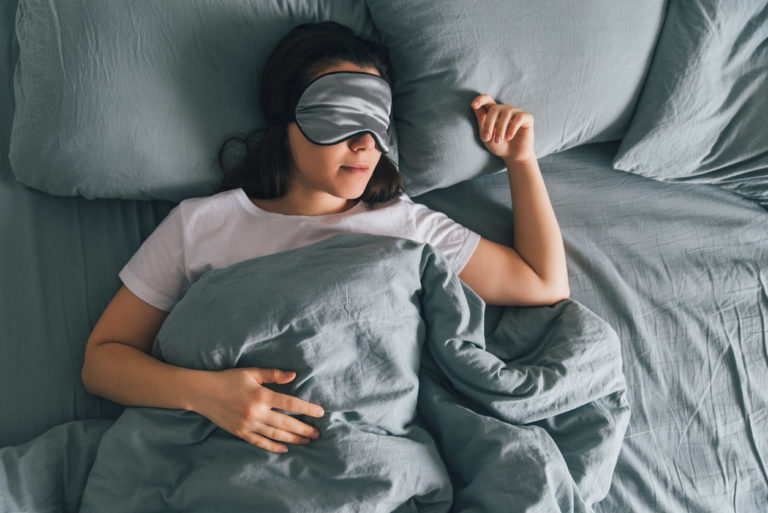Can Melatonin Actually Help You Sleep?
March 15, 2021

Not getting enough quality sleep can lead to moodiness, daytime drowsiness, poor cognitive function, and more.
There are many ways to help improve your sleep, starting with your natural melatonin production.
If natural methods don’t always work — and counting sheep fails you — sometimes a supplement is recommended.
Are you or someone you love struggling with sleep deprivation? Learn more about melatonin and how supplements might help you get a better night’s rest.
What is Melatonin?
Melatonin is a hormone naturally produced in the brain by the pineal gland, and levels rise at certain periods of the day. Melatonin lets your body know when it is nighttime in order for you to relax and fall asleep. However, some people’s melatonin levels are too low at night, often preventing sleep. This can lead to chronic sleep deprivation and insomnia.
Common causes for low melatonin levels include:
- Too much light at night
- Not enough light during the day
- Stress
- Smoking
- Shift work
Boosting Your Natural Melatonin Production
There are many ways to naturally support the body’s production of melatonin and help you get a better night’s sleep. Studies have shown that too much artificial and natural lighting inhibits the brain’s production of melatonin, so turning out the lights is a good place to start for people with chronic sleep deprivation.
You can also create a positive, sleep-inducing environment by:
- Refraining from tablet, smartphone, and computer use a few hours before bedtime
- Keeping lights low or off at night
- Getting enough daylight exposure in the morning and afternoon
- Reading a book with minimal light right before bed
- Using a sound machine or earplugs to prevent noise
Melatonin Supplements
If you’ve been dealing with persistent sleep issues or insomnia and have tried all natural methods, you may want to look into melatonin supplements. These supplements can come in the form of pills, liquids, or chewables, and they are common sleep aids taken by millions of Americans.
They can be great options to try first, before considering stronger sleep medications such as Ambien or other prescription sleep aids. Benefits of melatonin supplements include a lower risk of dependency, and no significant side effects have been reported when the supplement has been used in children.
Starting with 1 to 3 milligrams of melatonin before heading to bed is a safe and recommended dose for those looking to try it. If you’re trying to fight jet lag, taking the tablets for a few days prior to your travel date provide the best results. If it seems that melatonin is improving sleep quality, limit taking melatonin to two months or less.
Are there Side Effects of Melatonin?
Not everyone should experiment with taking melatonin supplements. Melatonin should be avoided in those who are breastfeeding or currently pregnant. Melatonin also may not work as intended if a person is taking the following medications:
- Birth control pills
- Diabetes drugs
- Certain hypertension medications
- Immunosuppressants
- Anticoagulants
Individuals taking melatonin should avoid using machinery or driving within a five-hour period after taking the supplement as it can lead to daytime drowsiness. Side effects of melatonin can include:
- Short-lived depression
- Crankiness
- Anxiety
- Stomach discomfort
- Headaches
- Dizziness
- Daytime sleepiness
Improve Your Sleep Tonight
Melatonin supplements can be a helpful option for individuals who may not be producing enough of the hormone at the right time. Melatonin should be taken in accordance with the recommended dosage for a specific sleep problem. Talk to a healthcare provider at an urgent care center near you to learn how melatonin supplements, or other natural remedies, may be used to establish a better environment for restorative sleep.
